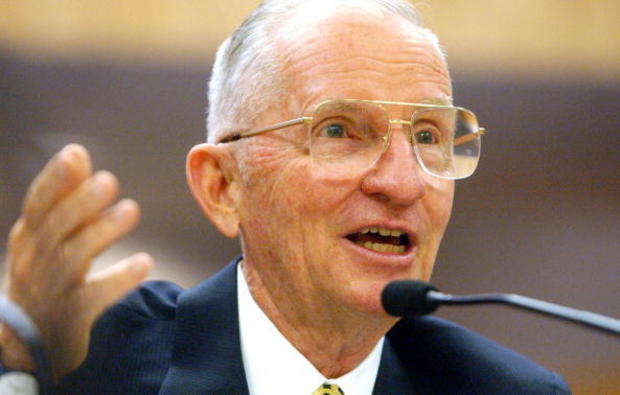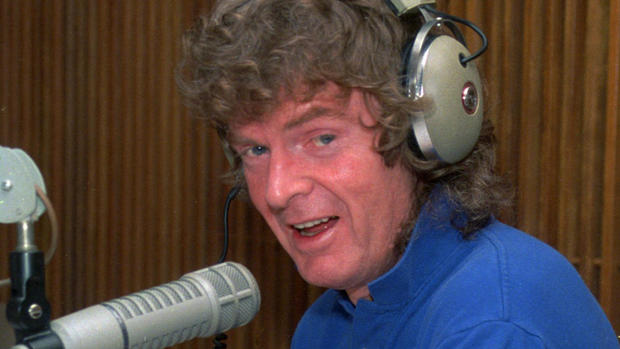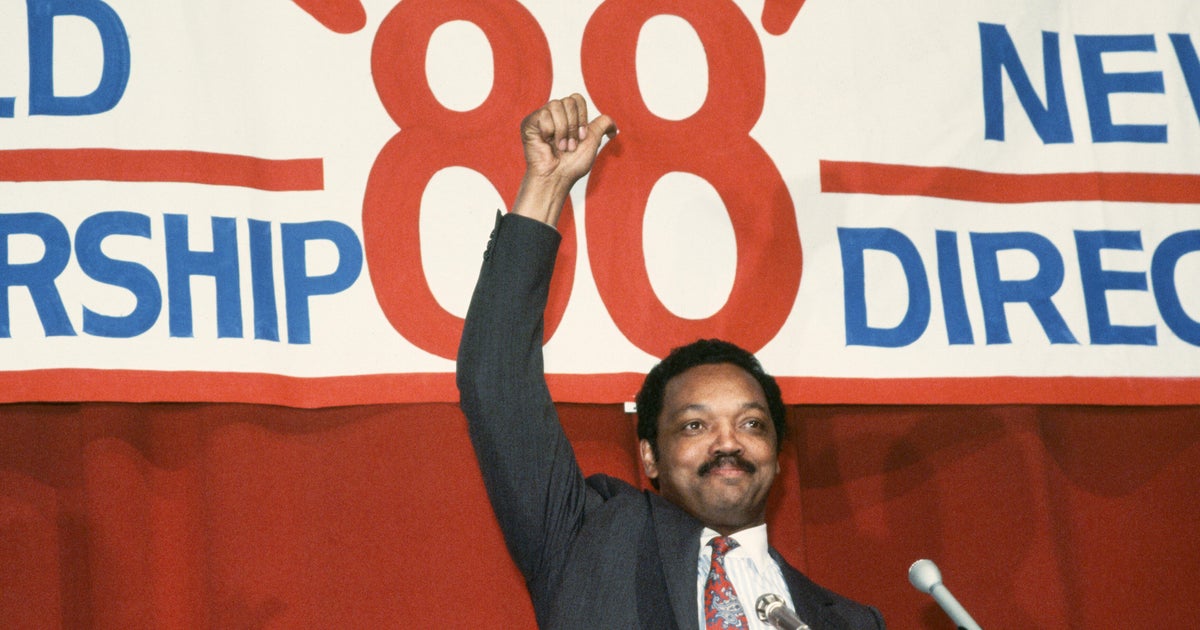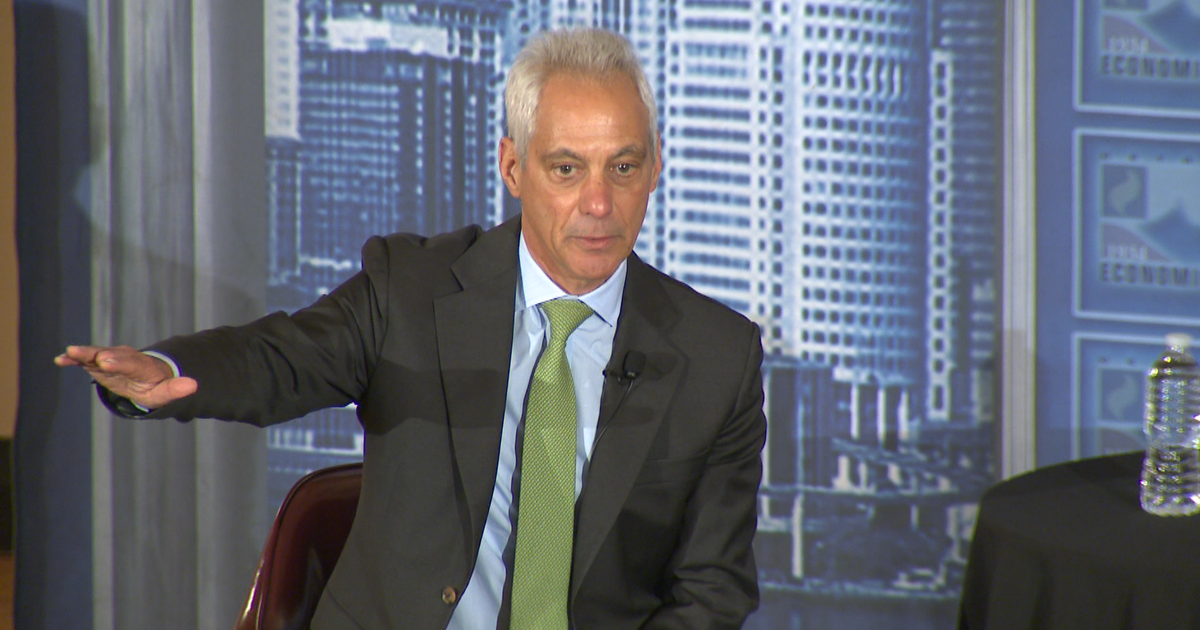Ross Perot, billionaire former presidential candidate, has died at age 89
Billionaire, philanthropist and former presidential candidate Ross Perot has died, CBS News has confirmed. He was 89.
Perot died in Texas, the state where he was born, surrounded by family.
"Mr. Perot was a true patriot and a dedicated humanitarian. He will be missed greatly," Ross Mulford of Petrus Asset Management Company said in a statement.
In 1992, Perot made a name for himself when he became the most successful non-major party presidential candidate in 80 years, amassing 19% of the popular vote, running against President George H.W. Bush and Arkansas Gov. Bill Clinton.
As a boy in Texarkana, Texas, Perot delivered newspapers from the back of a pony. He earned his billions in a more modern way, however — by building Electronic Data Systems Corp., which helped other companies manage their computer networks.
Yet the most famous event in his career didn't involve sales and earnings; he financed a private commando raid in 1979 to free two EDS employees who were being held in a prison in Iran. The tale was turned into a book and a movie.
Perot first became known to Americans outside of business circles by claiming that the U.S. government left behind hundreds of American soldiers who were missing or imprisoned at the end of the Vietnam War. Perot fanned the issue at home and discussed it privately with Vietnamese officials in the 1980s, angering the Reagan administration, which was formally negotiating with Vietnam's government.
Perot's wealth, fame and confident prescription for the nation's economic ills propelled his 1992 campaign against President George H.W. Bush and Democratic challenger Bill Clinton. Some Republicans blamed him for Bush's lost to Clinton as Perot garnered the largest percentage of votes for a third-party candidate since former President Theodore Roosevelt's 1912 bid.
During the campaign, Perot spent $63.5 million of his own money and bought up 30-minute television spots. He used charts and graphs to make his points, summarizing them with a line that became a national catchphrase: "It's just that simple."
Former President George W. Bush called Perot a patriot.
"Texas and America have lost a strong patriot," Bush said in a statement. "Ross Perot epitomized the entrepreneurial spirit and the American creed. He gave selflessly of his time and resources to help others in our community, across our country, and around the world. He loved the U.S. military and supported our service members and veterans. Most importantly, he loved his dear wife, children, and grandchildren. Laura and I send our heartfelt condolences to the entire Perot family as they celebrate a full life."
Perot's second campaign four years later was far less successful. He was shut out of presidential debates when organizers said he lacked sufficient support. He got just 8% of the vote, and the Reform Party that he founded and hoped to build into a national political force began to fall apart.
However, Perot's ideas on trade and deficit reduction remained part of the political landscape. He blamed both major parties for running up a huge federal budget deficit and letting American jobs to be sent to other countries. The movement of U.S. jobs to Mexico, he said, created a "giant sucking sound."
Perot continued to speak out about federal spending for many years. In 2008, he launched a website to highlight the nation's debt with a ticker that tracked the rising total, a blog and a chart presentation.
Henry Ross Perot was born in Texarkana on June 27, 1930. His father was a cotton broker; his mother a secretary. Perot said his family survived the Depression relatively well through hard work and by managing their money carefully.
Young Perot's first job was delivering papers in a poor, mostly black part of town from his pony, Miss Bee. Perot said when the newspaper tried to cut his commission, he complained to the publisher — and won. He said he learned to take problems straight to the top.
From Texarkana, Perot went to the U.S. Naval Academy even though he had never been on a ship or seen the ocean. After the Navy, Perot joined International Business Machines in 1955 and quickly became a top salesman. In his last year at IBM, he filled his sales quota for the year in January.
In 1962, with $1,000 from his wife, Margot, Perot founded Electronic Data Systems. Hardware accounted for about 80% of the computer business, Perot said, and IBM wasn't interested in the other 20%, including services.





